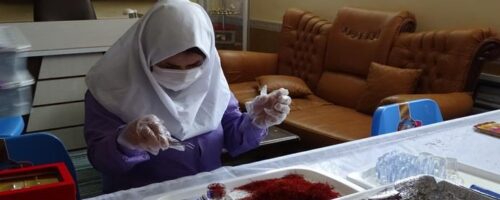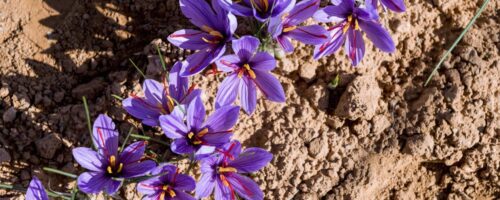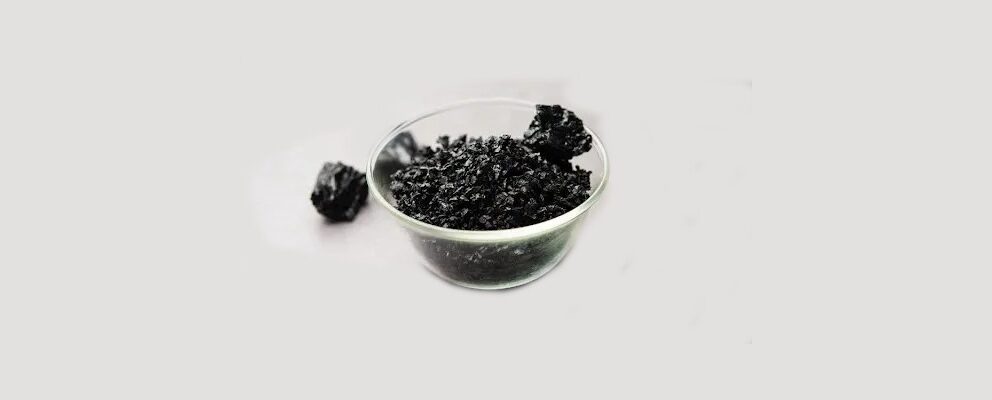Saffron, known for its vivid colour and mild flavour, is one of the world’s most coveted spices. Saffron is used in medicine and perfumes, in addition to its culinary applications in dishes such as Spanish paella and Iranian koresh. With its numerous applications, demand stays continually high. However, because its manual production requires a substantial amount of labour, entering the market is not easy. Nonetheless, for those who succeed, it is a profitable venture.
Although Afghan farmers have encountered various hurdles in recent years, including conflict and natural calamities, the country’s saffron producing industry appears to be quite promising. Afghanistan’s environment is ideal for cultivating this spice, making it a valuable source of income for small and medium-sized growers and traders. In 2019, saffron production and exports contributed USD 27 million to the country’s GDP. This result is not surprising given Afghan saffron’s recent status as the world’s best saffron.
Within Afghanistan, Herat province stands out as a major saffron cultivation centre. The FAO’s “Promoting the Value Chain – West (PVCW)” project is based in this region and is generously financed by the United States Agency for International Development. The project’s major goal is to collaborate with local traders to improve their saffron production, processing, and packaging capacities while adhering to global quality and hygiene requirements. This includes providing producers with necessary machinery and enabling the acquisition of ISO certificates for worldwide exporting. Notably, a key goal of the project is to empower women by promoting the development of own businesses, allowing them to capitalise on economic prospects in the saffron industry.

Karima Sadiqi has a saffron business in Herat province. As a woman in Afghanistan’s traditional society, she found it difficult to start her own business without her family’s approval. Initially, she worked as a small-scale saffron producer, selling her products through local and international middlemen. After three years of hard work, she eventually received her family’s support and registered her firm, Karwan Saffron. Now, she can compete with other saffron enterprises on the market.
Karima's Saffron Success Story


Karima first had difficulties in a market that was controlled by men. However, once she attended a 14-day FAO course in Herat, things improved. She gained knowledge about creating a strong business strategy and utilizing branding and marketing to introduce her goods to new markets during the PVCW program. She also discovered improved techniques for growing saffron, such as water management and plant spacing. With her newfound understanding, she improved the branding, manufacturing, and processing of her items.
She used what she discovered to grow her business quickly. She harvested 28 kg of saffron from her family’s estate in 2018. However, she received 50 kg from the same land in 2019. She also improved the saffron, which raises its price. With the assistance of FAO, she visited exhibitions in other nations. This enabled her to reach a global clientele.
“Saffron is piqueing my attention more and more because I believe its value extends beyond Afghanistan to all places. Selling it allows me to make money while showcasing Afghanistan’s positive aspects to the globe,” said Karima.
Karima’s company is flourishing. She exports saffron to Australia, India, Tajikistan, Uzbekistan, and the Ukraine. She now desires additional property in order to serve a larger clientele in Afghanistan and beyond.
Karima explains that her goal is to raise output as much as possible because it is currently below demand.
Empowering Women for Better Livelihoods and Social Status
Due to cultural norms that dictate that women should stay at home, women in Afghanistan don’t have many opportunities to work. Karima, though, is altering that. In her company, she has 28 other female employees. Despite the challenges she faces as a female employer due to cultural norms, she believes that if she persists, more Afghan women would have opportunities to work.
“I believe that nothing is insurmountable. Everything looks difficult at first, but as soon as we start, things move very fast,” she remarked.
“I want to see more women given the opportunity to work, especially those who are the sole providers for their families. Their social standing is raised while simultaneously providing them with a means of subsistence and improving their income.
FAO programs like this one in Herat province are designed to help women like Karima embrace opportunities in the food and agriculture sectors. Empowering women to fulfill their full potential is critical for improving food security, fostering gender equality, and achieving all SDGs.


